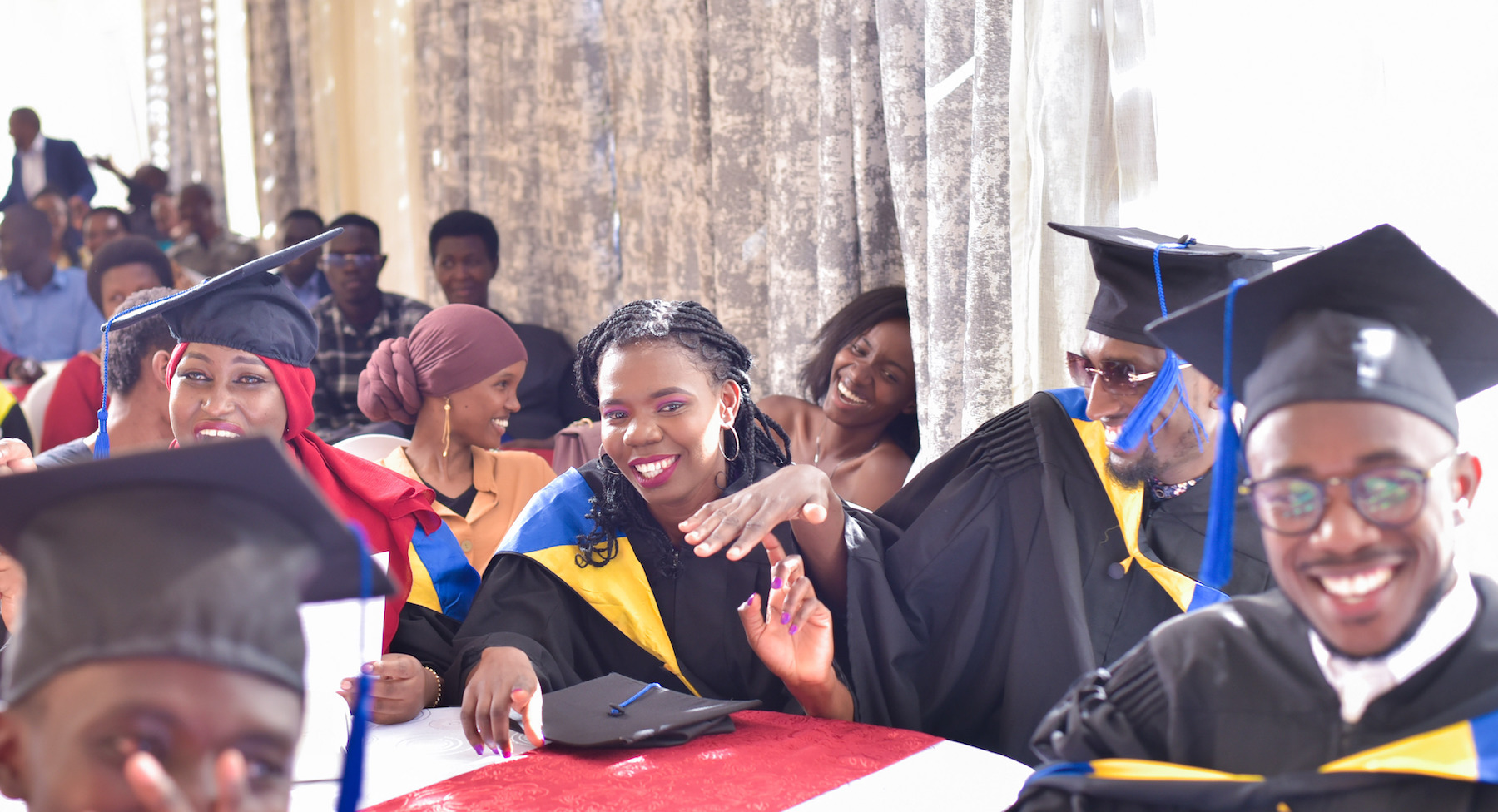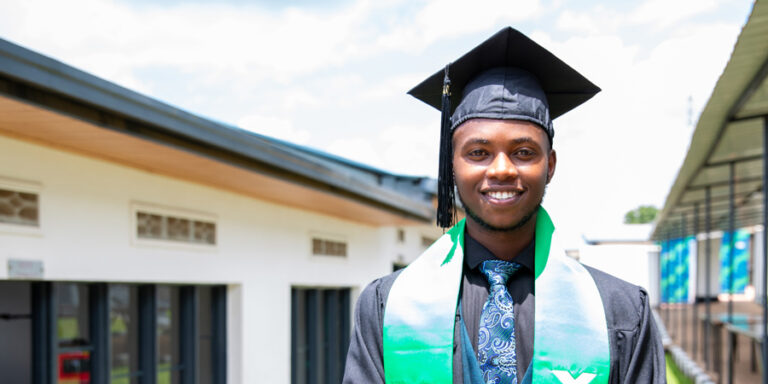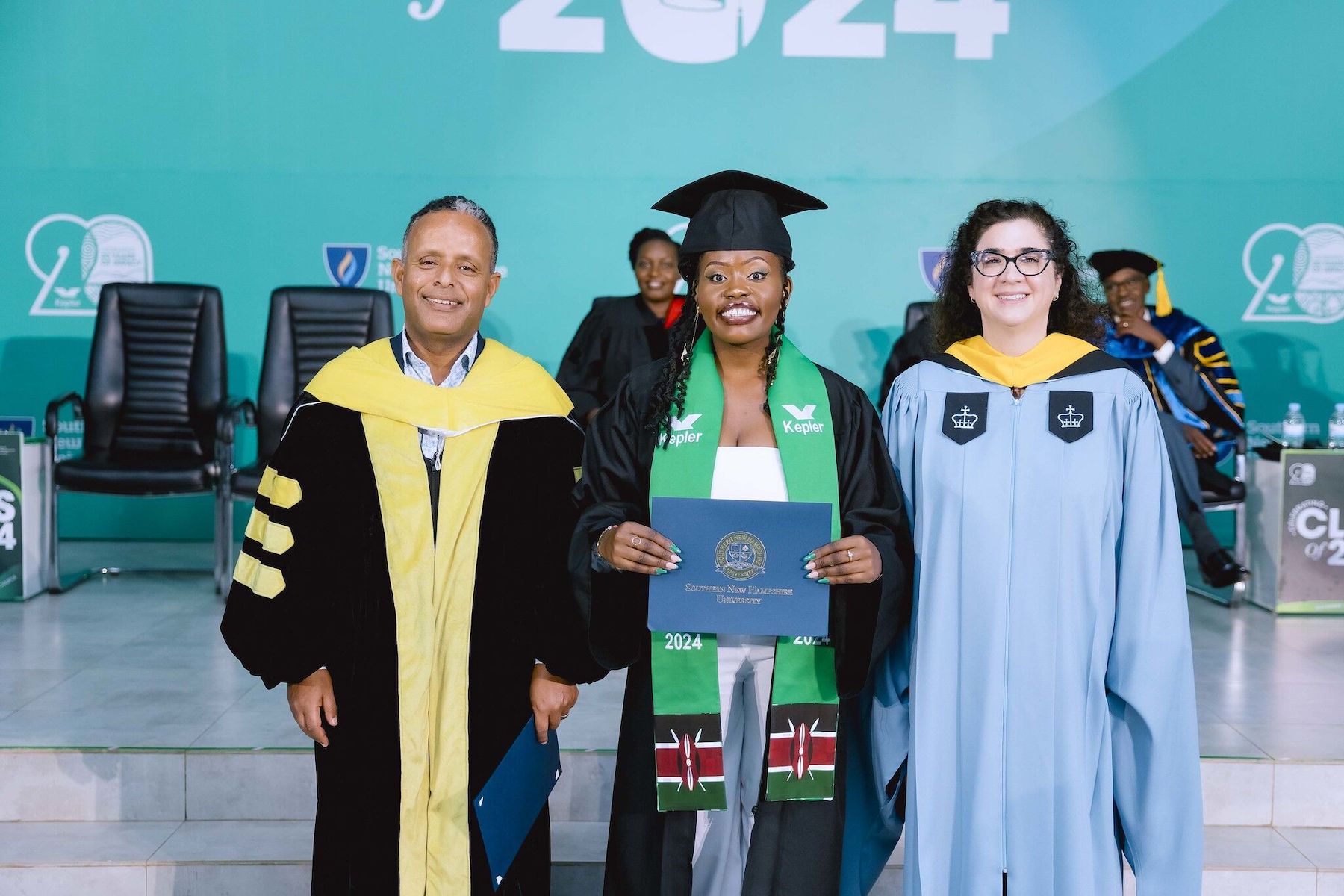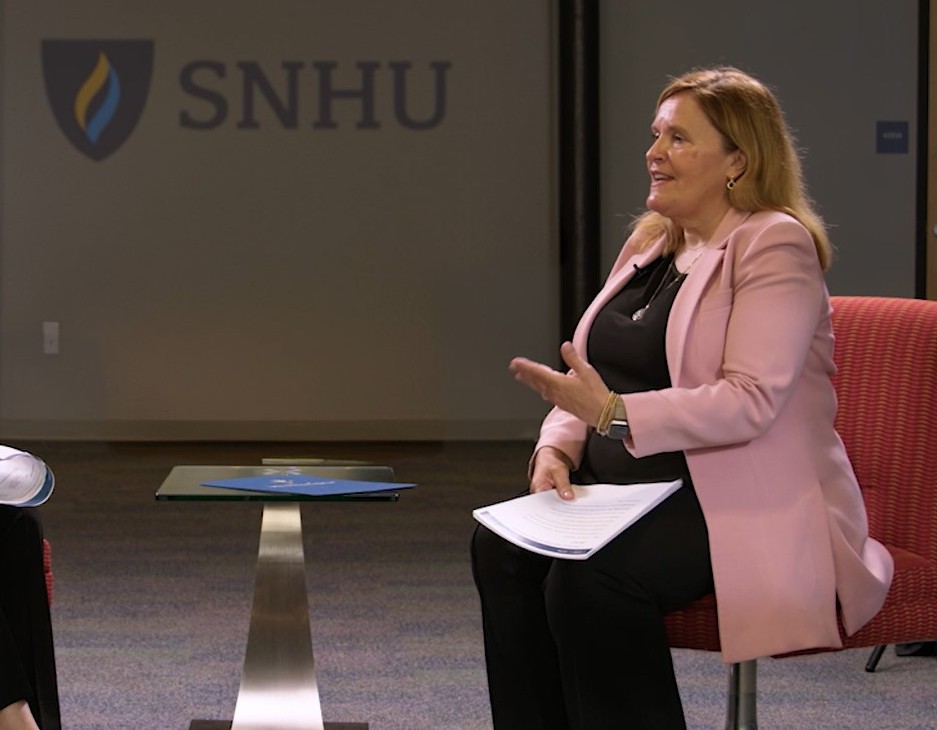A shared commitment to serving refugee learners is the basis for a thriving partnership between SNHU GEM and JRS Kenya.
Since its founding, Southern New Hampshire University’s Global Education Movement (SNHU GEM) has collaborated with in-country partners across Africa and the Middle East to ensure that refugee learners have the academic and livelihood supports they need to thrive.
SNHU GEM partners with Jesuit Refugee Service Kenya (JRS Kenya) in Nairobi and Kakuma to provide refugees with pathways to high-quality, affordable higher education and meaningful employment. Enos Kabelle, JRS Kenya Project Coordinator, sums up the partnership’s goal as “to give dignified life to refugees through tertiary education.”
SNHU GEM’s partnership with JRS Kenya allows students to “feel accompanied through the course, but also feel supported beyond it,” says Country Director Geoffrey Shikuku. “We know refugees have so many other needs besides just an educational program.”
In combination with SNHU GEM’s flexible, competency-based degree program, JRS Kenya offers wraparound academic and livelihood services under their Pathfinder program that meet learners where they are and ensure that students not only attain their degrees, but gain the skills they need to pursue brighter, more secure lives.
“As a refugee, my education means the world to me because I wouldn’t be standing here talking to you all if I wasn’t educated,” says SNHU GEM and JRS Kenya graduate Ufinfete Yunus Ahmed. Ufinfete dreams that one day, her education will give her a chance “to go back to my home country and make it a more peaceful place, so we don’t have to run away.”
Geoffrey Shikuku attributes the success of SNHU GEM and JRS Kenya’s partnership to their shared values. Both organizations are deeply committed to offering refugees and displaced people the tools to forge their own paths at their own pace.
“Our main goal is to expand the project further, to be able to have more beneficiaries gaining from it and give more opportunities and dignified life to refugees who cannot yet access this immense opportunity,” says Kabelle. “I look forward to a time when refugees will no longer be looked at differently from members of a host country, but as dignified human beings just like the rest of their community.”



